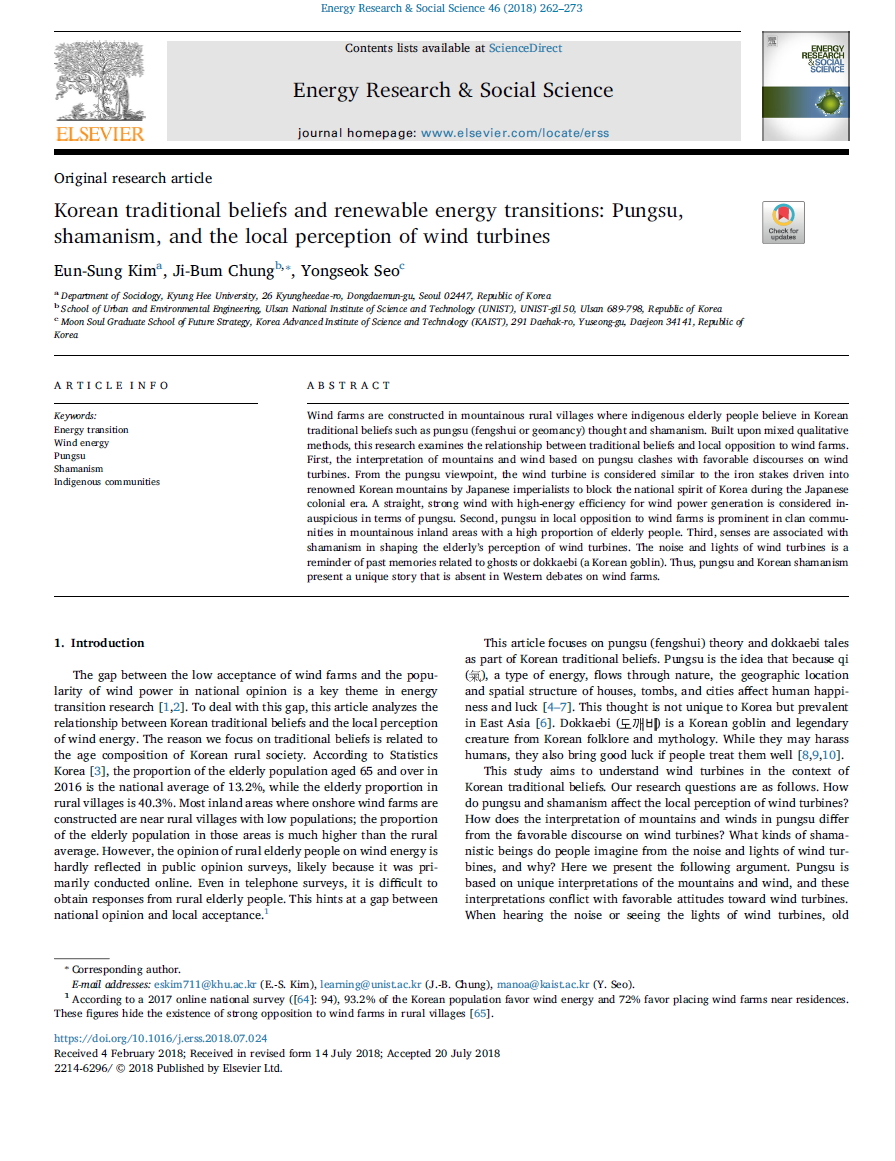
| Title |
: Korean traditional beliefs and renewable energy transitions: Pungsu,shamanism, and the local perception of wind turbines |
| Date |
: 2018.12 |
| Journal title |
: Energy Research and Social Science |
| Author |
: Kim, Eun-sung; Chung, Ji-bum; Seo, Yongseok |
| Contact us |
: csts@khu.ac.kr |
| Abstract |
: Wind farms are constructed in mountainous rural villages where indigenous elderly people believe in Korean traditional beliefs such as pungsu (fengshui or geomancy) thought and shamanism. Built upon mixed qualitative methods, this research examines the relationship between traditional beliefs and local opposition to wind farms. First, the interpretation of mountains and wind based on pungsu clashes with favorable discourses on wind turbines. From the pungsu viewpoint, the wind turbine is considered similar to the iron stakes driven into renowned Korean mountains by Japanese imperialists to block the national spirit of Korea during the Japanese colonial era. A straight, strong wind with high-energy efficiency for wind power generation is considered inauspicious in terms of pungsu. Second, pungsu in local opposition to wind farms is prominent in clan communities in mountainous inland areas with a high proportion of elderly people. Third, senses are associated with shamanism in shaping the elderly’s perception of wind turbines. The noise and lights of wind turbines is a reminder of past memories related to ghosts or dokkaebi (a Korean goblin). Thus, pungsu and Korean shamanism present a unique story that is absent in Western debates on wind farms. |
|

